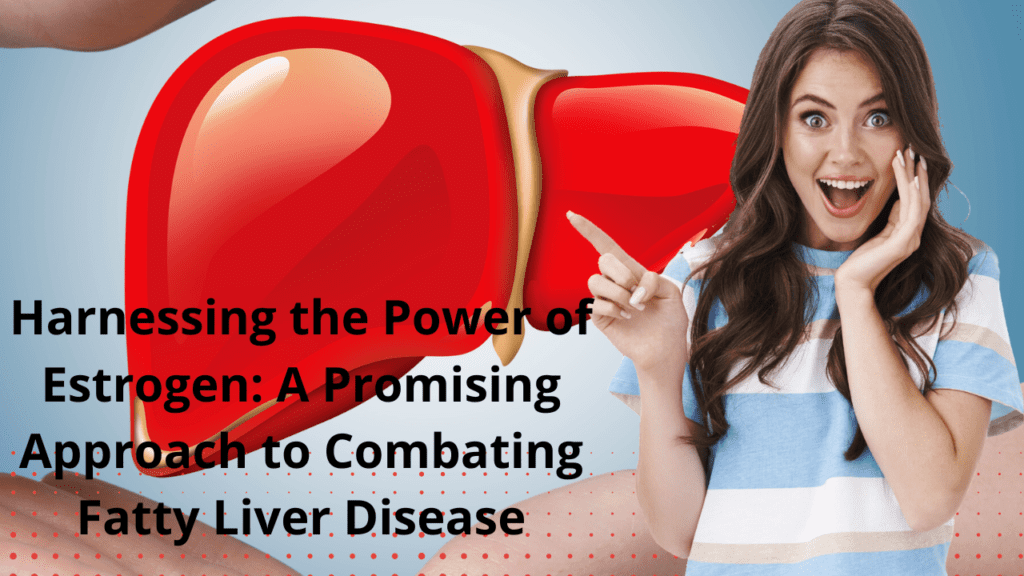
Introduction to Fatty Liver Disease
Fatty liver disease, also known as hepatic steatosis, is a condition characterized by the accumulation of fat in the liver cells. This can lead to liver inflammation, scarring, and potentially severe complications such as liver failure and liver cancer. There are two main types of fatty liver disease: alcoholic fatty liver disease and non-alcoholic fatty liver disease (NAFLD). While excessive alcohol consumption is the primary cause of alcoholic fatty liver disease (AFLD), obesity, insulin resistance, and high blood fat levels are also associated with NAFLD.
Understanding Estrogen
Estrogen is a hormone primarily associated with female reproductive health, although it is also present in smaller amounts in males. Produced by the ovaries in women and the testes in men, estrogen plays a crucial role in regulating the menstrual cycle, supporting pregnancy, and maintaining bone density.
The Link Between Estrogen and Fatty Liver Protection
Recent studies have highlighted the protective effects of estrogen against fatty liver disease. Research conducted on animal models and human subjects has demonstrated that estrogen can mitigate the development and progression of NAFLD. One study published in the Journal of Hepatology found that estrogen supplementation reduced liver fat accumulation and improved liver function in postmenopausal women with NAFLD.
The mechanisms through which estrogen exerts its protective effects on the liver are multifaceted. Estrogen has been shown to regulate lipid metabolism, decrease inflammation, and enhance insulin sensitivity, all of which contribute to the prevention of fatty liver disease. Additionally, estrogen may modulate the gut microbiota, influencing the balance of beneficial and harmful bacteria in the gastrointestinal tract, which can impact liver health.
Impact of Estrogen Levels on Fatty Liver Disease Risk
Maintaining optimal estrogen levels is essential for protecting against fatty liver disease. Several factors, including age, genetics, and lifestyle choices, can influence estrogen production and metabolism. As women age and enter menopause, estrogen levels naturally decline, which may increase their susceptibility to developing NAFLD. However, research suggests that hormone replacement therapy (HRT) with estrogen may help mitigate this risk by preserving liver health.
Lifestyle Changes to Support Estrogen Levels and Liver Health
In addition to HRT, adopting certain lifestyle modifications can support estrogen levels and promote liver health. A balanced diet rich in fruits, vegetables, whole grains, and lean proteins can help regulate hormone levels and reduce the accumulation of fat in the liver. Regular physical activity is also beneficial, as exercise can enhance estrogen metabolism and improve insulin sensitivity.
Furthermore, managing stress levels through relaxation techniques such as meditation, yoga, and deep breathing exercises can positively impact hormone balance and liver function. Avoiding excessive alcohol consumption and maintaining a healthy body weight are also crucial for preventing fatty liver disease.
Conclusion
In conclusion, research indicates that estrogen plays a vital role in protecting against fatty liver disease, particularly NAFLD. By understanding the mechanisms through which estrogen influences liver health, healthcare professionals can develop targeted interventions to prevent and manage this prevalent and potentially debilitating condition. Incorporating lifestyle changes that support estrogen levels, such as a nutritious diet, regular exercise, and stress management, can further enhance liver function and reduce the risk of fatty liver disease.
FAQs
- Can men also benefit from estrogen’s protective effects against fatty liver disease?
- While estrogen is primarily associated with female reproductive health, men also produce lesser amounts of this hormone, and studies suggest that estrogen may confer protective benefits against fatty liver disease in both sexes.
- Are there any side effects associated with estrogen replacement therapy for fatty liver disease?
- Like any medication, estrogen replacement therapy may have potential side effects, including an increased risk of blood clots, stroke, and breast cancer. It is essential to discuss the risks and benefits of HRT with a healthcare provider.
- Can lifestyle changes alone prevent or reverse fatty liver disease?
- In many cases, adopting a healthy lifestyle encompassing a balanced diet, regular exercise, and stress management can help prevent and even reverse fatty liver disease, particularly in its initial stages.
- Are there any dietary supplements that can support liver health and estrogen levels?
- Certain supplements, such as omega-3 fatty acids, vitamin E, and milk thistle, have been studied for their potential benefits in supporting liver health. However, it is essential to consult with a healthcare professional before taking any supplements, especially if you have underlying medical conditions or are taking medications.
- What role does estrogen play in the development of other liver diseases, such as cirrhosis and liver cancer?
- Estrogen may have complex effects on the development and progression of various liver diseases, including cirrhosis and liver cancer. While some studies suggest that estrogen may exacerbate certain liver conditions, others indicate potential protective effects. Further research is needed to elucidate the role of estrogen in liver disease pathogenesis fully.
